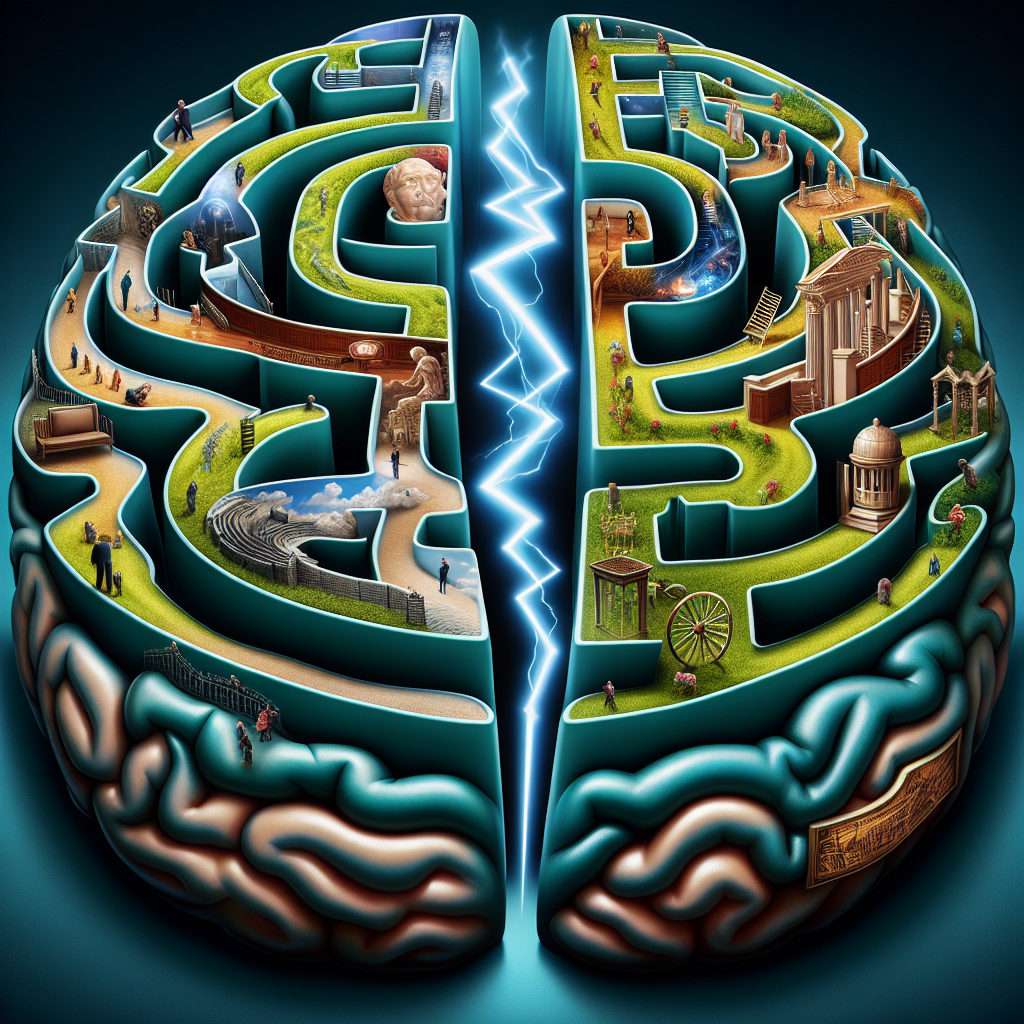
Introduction
Imagine a vivid, detailed memory of a significant event from your childhood—only to discover that it never occurred. Welcome to the perplexing world of False Memory Syndrome: A Controversial Frontier in Psychology.
This captivating phenomenon blurs the line between reality and imagination, raising critical questions about the reliability of human memory, the influence of suggestion, and the implications for personal and legal matters. With the advent of modern psychology, the study of false memories has not only opened new avenues of research but also sparked heated debates among professionals and laypersons alike. In this exploration, we will delve into the dynamics of false memory syndrome, examine case studies, analyze evidence, and contemplate its impact on individuals and society.
Understanding False Memory Syndrome
What Is False Memory Syndrome?
False Memory Syndrome (FMS) refers to the phenomenon wherein a person recalls memories of events that either did not happen or are significantly distorted. This syndrome is particularly controversial due to its implications in various fields, including psychotherapy, law, and personal relationships.
Why is Memory Fallible?
Memory is not a perfect recording of our experiences; rather, it is a reconstructive process. Influenced by external cues, emotions, and the passage of time, our memories can become malleable. This brings us to the critical concept in understanding False Memory Syndrome: A Controversial Frontier in Psychology—the distinction between memory recall and memory construction.
The Stages of Memory Formation
- Encoding: The initial process of perceiving and taking in information.
- Storage: The organization and retention of those memories.
- Retrieval: The ability to access and recall stored memories.
During any of these stages, various factors can introduce errors, leading to constructs that may feel authentic but are false.
The Science Behind False Memories
Factors Contributing to False Memories
Suggestibility
One of the most powerful forces in shaping memory is suggestibility, which refers to the effects of external information on an individual’s recollection. In therapy settings, for instance, suggestions made by therapists can lead individuals to form vivid but inaccurate memories.
Misinformation Effect
The misinformation effect occurs when misleading information presented after an event alters a person’s memory of that event. This phenomenon was notably illustrated in the 1990s by psychologist Elizabeth Loftus through various studies.
Imagination Inflation
Another fascinating factor is imagination inflation, where simply imagining an event can increase an individual’s confidence that the event actually occurred.
Case Study: Loftus’s Landmark Studies
Elizabeth Loftus’s work on false memories paved the way for understanding the psychological mechanisms driving False Memory Syndrome: A Controversial Frontier in Psychology. In one study, participants were fed misinformation about a traffic accident they had witnessed, which led them to confidently recall details that never occurred.
| Factor | Definition | Result |
|---|---|---|
| Suggestibility | Influence of external information | Altered memory recall |
| Misinformation Effect | Misleading post-event information | Creation of false memories |
| Imagination Inflation | Imagining events leads to belief | Increased confidence in false memories |
Legal Implications of False Memory Syndrome
The Role of FMS in Legal Proceedings
False Memory Syndrome has gained significant attention in legal circles due to its implications in eyewitness testimony and false confessions. With the potential for incorrect memories to lead to wrongful convictions, understanding how memory works is crucial.
Notable Case: The McMartin Preschool Trial
The McMartin Preschool trial of the 1980s serves as a glaring example of how FMS can impact legal outcomes. Eyewitness testimonies and claims of abuse were heavily influenced by suggestive questioning, leading to false memories that wreaked havoc on countless lives. This trial highlights the importance of scrutinizing memory reliability, especially in serious legal matters.
The Psychological Impact of False Memory Syndrome
Emotional and Psychological Consequences
The effects of False Memory Syndrome can be emotionally devastating. Individuals may grapple with the confusion of reality versus fabricated memories, which can lead to anxiety, depression, and a fractured sense of self.
Healing Through Awareness
Understanding FMS can help individuals find pathways to healing. Therapists who are aware of these concepts may employ techniques to mitigate the impact of false memories, fostering a more nuanced approach to treatment.
Ways to Address and Manage FMS:
- Education: Increasing awareness and understanding of false memories.
- Cognitive Behavioral Therapy: Techniques aimed at addressing cognitive distortions.
- Mindfulness: Enhancing present-moment awareness to decrease anxiety about past events.
Conclusion
The complexities surrounding False Memory Syndrome: A Controversial Frontier in Psychology challenge our understanding of memory, reality, and the human experience. As research continues to unravel the intricacies of memory formation, reflection on this frontier offers both caution and hope.
By fostering awareness of the malleability of memory, we can develop healthier attitudes towards our recollections, offering room for healing and understanding. Ultimately, embracing the fallibility of memory does not diminish our experiences; rather, it enriches our journey through the human psyche.
FAQs
1. What causes false memories?
False memories can arise from various factors including suggestion, misinformation, and the natural reconstructive nature of memory.
2. How common is False Memory Syndrome?
While exact statistics are challenging to determine, research suggests that false memories are relatively common, especially in therapeutic settings.
3. Can therapy help individuals with false memories?
Yes, therapy can provide individuals with tools to understand and address the impact of false memories, promoting a healthier relationship with their recollections.
4. Are false memories serious?
They can have serious implications, particularly in legal circumstances. False memories can lead to wrongful accusations and convictions, highlighting the necessity for reliable memory assessment.
5. How can I protect myself from developing false memories?
Awareness, critical thinking, and possibly seeking guidance from trained professionals can help individuals avoid the pitfalls of suggestibility and false memory creation.
In crafting this expansive exploration, the aim was to provide unique insights into False Memory Syndrome: A Controversial Frontier in Psychology, offering value and clarity on a subject that is as captivating as it is complex. The intricacies of memory invite us to dive deeper into the fascinating interplay of the mind, influencing not just perceptions, but also the very fabric of our personal and shared realities.















